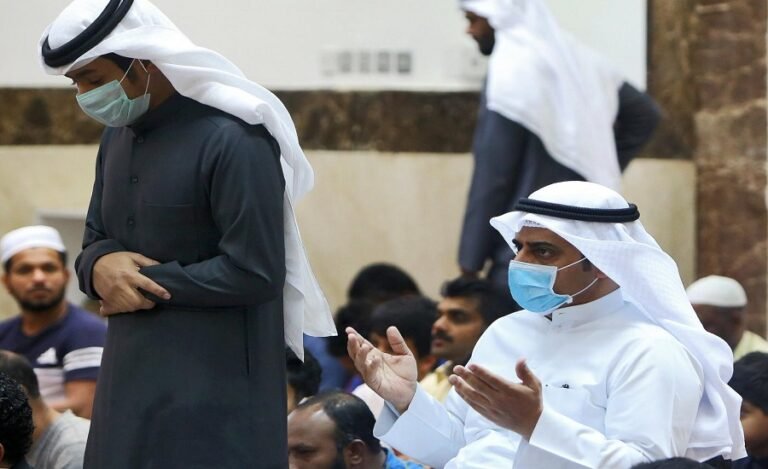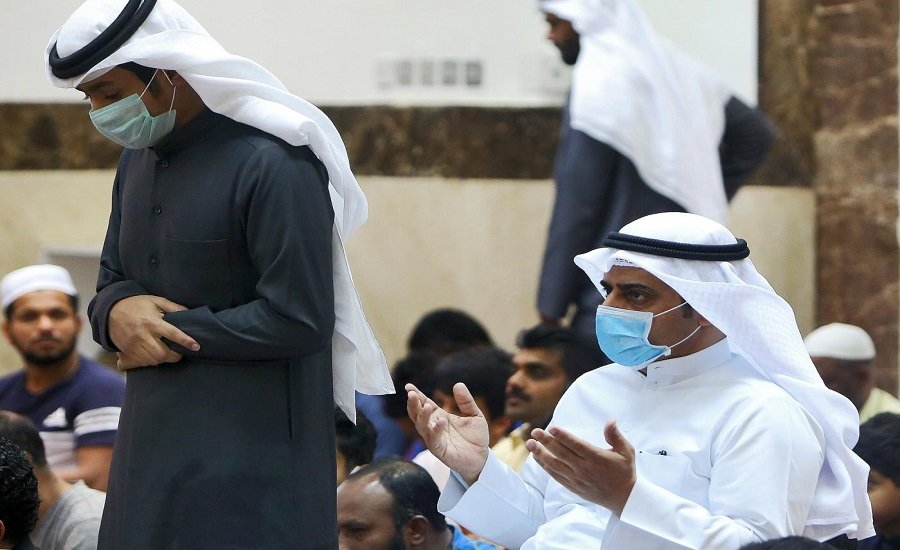

NEW DELHI (Agencies) — As casualties from the COVID-19 pandemic begin to soar in regions other than China, authorities across the globe are coming up with ways to enforce social distancing in their efforts to curb the spread.
In one such measure that has gone viral on social media, mosques in Kuwait, where prayer congregations are banned, have transformed the Azaan or the call to prayer ever so slightly — instead of the usual call that includes Hayya Ala Al salah (come to prayer), muezzins in the country are announcing Al Salatu Fi Buyutikum (pray in your homes) from mosques five times a day.
The transformed call to prayer is rooted in the Sahih Bukhari, which has a narration from Abdullah bin Al-Harith on the Prophet Muhammad (PBUH) allowing for the exact same changes to the Azaan on rainy or muddy days.
https://www.youtube.com/watch?v=a5ziQy_wixo
Many countries across the Middle East, including Iran, Egypt and Oman, have suspended Friday prayers to prevent the spread of the virus
Saudi Arabia, which had earlier barred foreign pilgrims from visiting the holy cities of Makkah and Madina, joined the United Arab Emirates in suspending all Friday and other main prayer congregations at mosques across the Kingdom.
Prayers however will continue normally at the Prophet’s (PBUH) mosque in Madina and the Masjid al Haram in Makkah.
In addition to banning prayers in all mosques for four weeks, UAE’s Sharia Council has issued a fatwa banning people who are sick from attending prayers and services.
Saudi had also temporarily emptied the Kaaba, Islam’s holiest site, for sterilisation.
Turkey’s top religious authority has also suspended all congregational prayers in mosques, including traditional Friday prayers, but said mosques will remain open for those who want to pray individually.
Meanwhile in Jerusalem, the Al Aqsa Mosque administration has said Friday prayers will be held as usual, but urged people to pray in the outer courtyard and avoid crowding the mosque.
Pakistan has not yet suspended prayer congregations, but religious leaders have urged prayer leaders to shorten Friday prayers as well as daily prayers, advising the public to go to mosques only for Farz prayers.
Iraq has also scrapped Friday prayers in Karbala and in the country’s predominantly Kurdish northern region. Meanwhile, cleric Grand Ayatollah Ali Al Sistani has urged people to abide by a ban on mass prayers.
In Lebanon, the country’s top Sunni authority has said it is forbidden for anyone with a contagious disease to attend prayers and also urged elderly people and those with weakened immune systems to pray at home.
Greetings in the time of coronavirus
With experts around the world urging people to avoid shaking hands and adopt social distancing measures, Muslims have also had to change the way in which they greet other Muslims.
Speaking to AFP, residents in the Omani capital of Muscat say there has been much “fear and panic” over what many of them have termed “coronaphobia”, and many people have stopped shaking hands or kissing each other on the cheeks, a common greeting across the Arab world.
Anticipating the dangers of the virus spreading, the UAE and Qatar have advised their citizens to stop the traditional “nose to nose” greeting, with Abu Dhabi instructing residents that a wave would suffice.
Other measures taken
Muslim countries have also taken a whole host of other measures as they continue to grapple with the global pandemic.
Dubai and Abu Dhabi have closed gyms, public gardens, arcades and spas as well as stock market trading halls. While restaurants remain open in the UAE, other Gulf states are now permitting only food delivery.
Qatar has banned people from eating at restaurants and cafes, joining Kuwait and Saudi Arabia in doing so. Meanwhile, Oman has canceled all non-urgent surgeries at hospitals.
Pakistan has closed its borders with Iran and Afghanistan for at least two weeks and has shut down schools until April 5, in addition to banning public gatherings including weddings, according to Dawn.
In Turkey, the government has announced that all bars, restaurants, cafes, wedding venues, movie theaters, and indoor children’s play areas are closing.